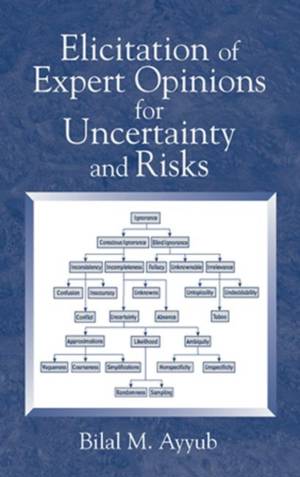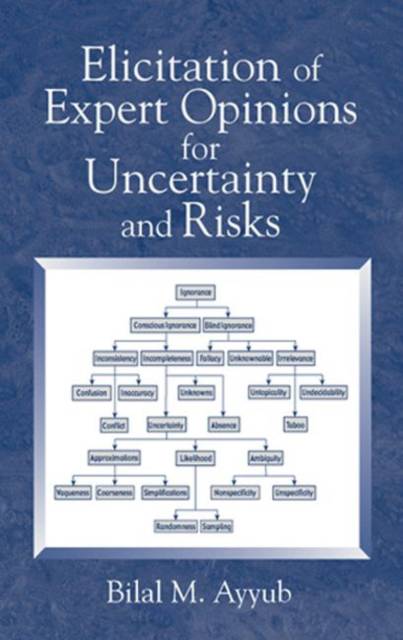
- Afhalen na 1 uur in een winkel met voorraad
- Gratis thuislevering in België vanaf € 30
- Ruim aanbod met 7 miljoen producten
- Afhalen na 1 uur in een winkel met voorraad
- Gratis thuislevering in België vanaf € 30
- Ruim aanbod met 7 miljoen producten
Zoeken
€ 305,45
+ 610 punten
Omschrijving
Experts, despite their importance and value, can be double-edged swords. They can make valuable contributions from their deep base of knowledge, but those contributions may also contain their own biases and pet theories. Therefore, selecting experts, eliciting their opinions, and aggregating their opinions must be performed and handled carefully, with full recognition of the uncertainties inherent in those opinions.
Elicitation of Expert Opinions for Uncertainty and Risks illuminates those uncertainties and builds a foundation of philosophy, background, methods, and guidelines that helps its readers effectively execute the elicitation process. Based on the first-hand experiences of the author, the book is filled with illustrations, examples, case studies, and applications that demonstrate not only the methods and successes of expert opinion elicitation, but also its pitfalls and failures. Studies show that in the future, analysts, engineers, and scientists will need to solve ever more complex problems and reach decisions with limited resources. This will lead to an increased reliance on the proper treatment of uncertainty and on the use of expert opinions. Elicitation of Expert Opinions for Uncertainty and Risks will help prepare you to better understand knowledge and ignorance, to successfully elicit expert opinions, to select appropriate expressions of those opinions, and to use various methods to model and aggregate opinions.Specificaties
Betrokkenen
- Auteur(s):
- Uitgeverij:
Inhoud
- Aantal bladzijden:
- 324
- Taal:
- Engels
Eigenschappen
- Productcode (EAN):
- 9780849310874
- Verschijningsdatum:
- 27/06/2001
- Uitvoering:
- Hardcover
- Formaat:
- Genaaid
- Afmetingen:
- 163 mm x 244 mm
- Gewicht:
- 648 g

Alleen bij Standaard Boekhandel
+ 610 punten op je klantenkaart van Standaard Boekhandel
Beoordelingen
We publiceren alleen reviews die voldoen aan de voorwaarden voor reviews. Bekijk onze voorwaarden voor reviews.











